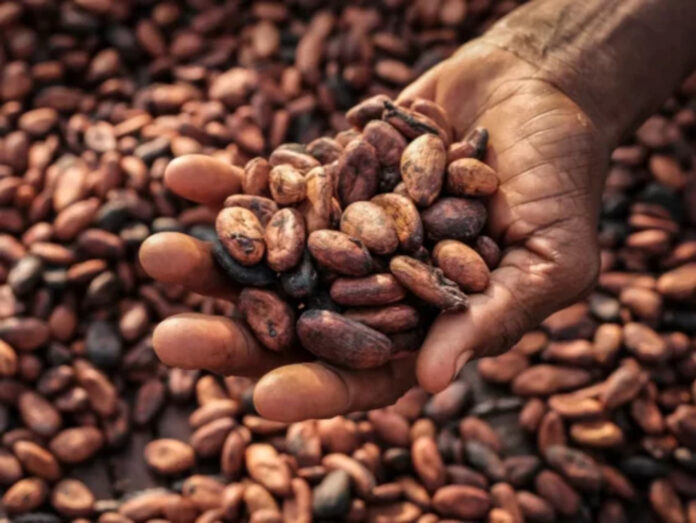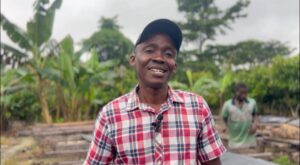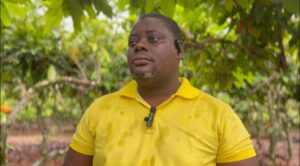Some cocoa farmers in the Assin Fosu District of the Central Region are urging the government and stakeholders to keep politics out of the cocoa sector.
Their call follows the recent producer price adjustment, which they say fails to reflect the hard work they put into cocoa farming, a problem they believe stems from the politicisation of the industry.
For farmers like Samuel Tobi, an award‑winning cocoa farmer, the future of cocoa determines the future of his entire livelihood. Owning 36 acres of cocoa farms of three different farms, including “Otabil Nkwanta,” Mr. Tobi has dedicated his life to producing quality beans for Ghana and the world at large.
But he fears politics is creeping too deeply into the heart of the industry. He believes politics must stay out of Cocoa management.
“When a new government comes, they change cocoa prices and even swap out the experts who know the work, it is affecting us cocoa farmers. Some of these officials have the knowledge and experience, but because of politics, they are removed. COCOBOD should not be politicized in any way,” he asserted.
The government recently announced an increase in the producer price of cocoa, a welcome rise, but still short of the 70% promised farmers.
Mr. Tobi stressed that he accepts the increase “in good faith,” but reminds policymakers that farmers’ costs are also rising. From foodstuffs they buy in the market to hired labor, every cedi spent on the farm and their household eats into profits.
The government officially reintroduced the free fertilizer cocoa programme which seeks to reverse previous challenges where farmers could not afford inputs, undermining productivity and being a reason the cocoa increment did not match the exact percentage promised.
Mr.Tobi is also passionate about hand pollination, a critical farming practice that can double yields if done properly. Hand pollination helps produce more pods and better harvests.
Because most cocoa farmers in Ghana are over 50 years old and 60% being men and 40% women according to statistics, eyesight problems often make hand pollination difficult.
The Cocoa Management System (CMS) pruning education coordinator at Assin Fosu District, Ayiku Abdul Raman Tetteh, emphasized that good eyesight is essential for removing pollen grains from cocoa flowers using forceps.
“We train young people because many older farmers cannot see well enough to do the work,” he said. “The training is free, but when pollinators work on a farm, the cost depends on the farmer’s ability to pay,” he added.
These young pollinators not only help increase yields but also keep farms productive despite the aging farmer population. Abdul Rahman stressed that the management even mediates disputes between farmers and pollinators to ensure the work continues smoothly.
The German development agency, GIZ, plays a key role in strengthening Ghana’s cocoa sector. By training journalists, supporting farmers, promoting sustainability, and improving value chains, GIZ partners with COCOBOD’s Cocoa Health and Extension Division, and farmer cooperatives to make cocoa production more profitable, and sustainable.
For Tobi Samuel, the message is clear, Ghana’s cocoa farmers don’t just need good prices, they need stability, protection from political interference, and practical support.
He believes protecting cocoa is protection of the future.




